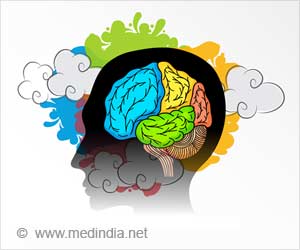MIT neuroscientists have delved into an understanding of the specific brain region that seems to influence moral judgements.
To make moral judgments about other people, we often need to infer their intentions - an ability known as "theory of mind."Previous studies have shown that a brain region known as the right temporo-parietal junction (TPJ) is highly active when we think about other people's intentions, thoughts and beliefs. In the new study, the researchers disrupted activity in the right TPJ by inducing a current in the brain using a magnetic field applied to the scalp. They found that the subjects' ability to make moral judgments that require an understanding of other people's intentions was impaired.
The researchers, led by Rebecca Saxe, MIT assistant professor of brain and cognitive sciences, report their findings in the Proceedings of the National Academy of Sciences the week of March 29.
The study offers "striking evidence" that the right TPJ, located at the brain's surface above and behind the right ear, is critical for making moral judgments, says Liane Young, lead author of the paper. It's also startling, since under normal circumstances people are very confident and consistent in these kinds of moral judgments, says Young, a postdoctoral associate in MIT's Department of Brain and Cognitive Sciences.
"You think of morality as being a really high-level behavior," she says. "To be able to apply (a magnetic field) to a specific brain region and change people's moral judgments is really astonishing."
To reach the conclusion, the researchers used a non-invasive technique known as transcranial magnetic stimulation (TMS) to selectively interfere with brain activity in the right TPJ. A magnetic field applied to a small area of the skull creates weak electric currents that impede nearby brain cells' ability to fire normally, but the effect is only temporary.
Advertisement
In a second experiment, TMS was applied in 500-milisecond bursts at the moment when the subject was asked to make a moral judgment. For example, subjects were asked to judge how permissible it is for someone to let his girlfriend walk across a bridge he knows to be unsafe, even if she ends up making it across safely. In such cases, a judgment based solely on the outcome would hold the perpetrator morally blameless, even though it appears he intended to do harm.
Advertisement
Source-ANI
SAV













